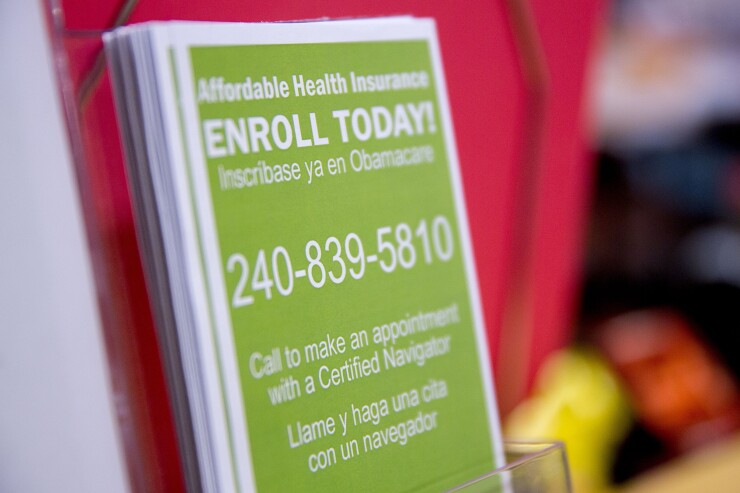From the pitfalls of hybrid work schedules to changing retirement plans among millennial talent, 2024 brought a host of changes to the employee benefits landscape. Other top issues included whether the Affordable Care Act can survive a Trump presidency and looks at the pros and cons of hybrid work.
Following are Employee Benefit News' most read articles for 2024.

The hybrid work experiment is failing everyone
Article by
Hybrid work seemed like the magic fix for the disconnection,
Today, 74% of employers have
A third of remote workers have reported feeling

Raises won't keep up with the cost of living in 2024
Article by
The last few years have been especially hard on
While 74% of business leaders anticipated giving raises in 2024, half noted that pay increases will impact 50% or less of their workforce, according to a survey from
"When you hear the word raise, that implies that after you receive one, the quality of your life will increase because you're earning more money," says Stacie Haller, chief career advisor at Resume Builder. "If your raises are not as high as the inflation rate in the economy, you're really not getting a raise."

Millennials don't plan on retiring at 65 — here's their new strategy
Article by
For decades, the road to retirement has been laid out for employees in a relatively straight path: Save up and
More than half of millennials believe retirement means financial independence, not reaching a set age, according to a survey by Iralogix, an IRA-solutions provider. Additionally, nearly 17% say they don't anticipate leaving the workforce fully; rather, they envision having more flexibility in their careers, whether that's working part-time, starting a business or pursuing a passion project.
"Millennials have gone through two pretty bad down markets, and they have a different experience than other generations," says Lowell Smith, cofounder of Iralogix. "For millennials, it's more of a lifestyle, which doesn't seem to fit the way baby boomers and the older generations are planning it out."

Gen Xers were voted the best managers among their colleagues
Article by
It's a universal truth that leading a team is a difficult task for anyone, but
Forty-nine percent of workers said that coworkers from Gen X — those generally born between 1965 and 1980 — make the best managers, according to FlexJobs' 2024 Generations at Work
"Gen X employees are well into their careers and likely have worked with both boomers and millennials giving them a unique perspective in the workplace," says Toni Frana, manager and career expert at FlexJobs. "Having this cross-generational experience can shape the management style of a Gen X manager."

Recruiters tell all: Red flags, resumes and the 6-second rule
Article by
When Stacie Haller sees a resume pop up in her email, the clock starts ticking.
"Recruiters are looking at 100 resumes at a time," says Haller, chief career adviser at Resume Builder. "If I count one-Mississippi to six and you're the 60th resume in my pile and you look like everyone else, I don't want you."
It may sound harsh, but recruiters are now working harder than ever,

EEOC lawsuits are down in 2024: Here's what this means for employers
Article by
It's been a relatively slow year for the U.S. Equal Employment Opportunity Commission (EEOC), with an unexpected decline in the number of
According to EEOC, it filed 110 lawsuits against unlawful
"It was only at the very end of the last fiscal year that there was a Democratic majority," says Andrew Scroggins, a labor and employment attorney at Seyfarth Shaw. "So that partly explains the lack, but we expected coming out of last year that there would be more cases filed because of that shift."

Walmart's director of benefits brings financial wellness to 1.6 million employees
Article by
Being responsible for the
"Walmart is so big; you have this tremendous responsibility, but also this phenomenal opportunity to reach so many people," Light says. "What we design today might not be what we need next year, so you can't be stale in your thought processes; you have to have an innovative mindset and you have to have a future mindset."
Light has focused her work as a benefits professional on helping people achieve financial wellness through

Will the Affordable Care Act survive a Trump presidency?
Article by
President-elect Donald Trump has repeatedly vowed to repeal the Affordable Care Act (ACA), which ensures that 45 million Americans have access to
The results of the
Since the inception of the ACA, also known as Obamacare, the Republican party has been clear that they do not think the federal government should be funding states to provide healthcare coverage to its residents. Trump's second presidency may provide the opening many members of the GOP have been waiting for.

How this company saved over $5 million with a self-funded health plan
Article by
In an uncertain labor market and economy, employers can usually bet on
According to consulting firm Willis Towers Watson,
"The savings come from good contracts with good [healthcare] providers," says Megan Berry Barlow, chief human resources officer at NFM. "To me, that means visibility. We know the quality of providers and what those providers will be charging."

Mental health leaves of absence are surging in 2024
Article by
Despite the influx of new wellness apps and
According to mental health services provider ComPsych,
Under the Family and Medical Leave Act, employees are entitled to 12 weeks of unpaid leave if they're experiencing a serious health condition or have to care for a sick loved one. Severe mental health conditions can qualify employees for short-term disability, which typically covers at least a portion of the wages.





